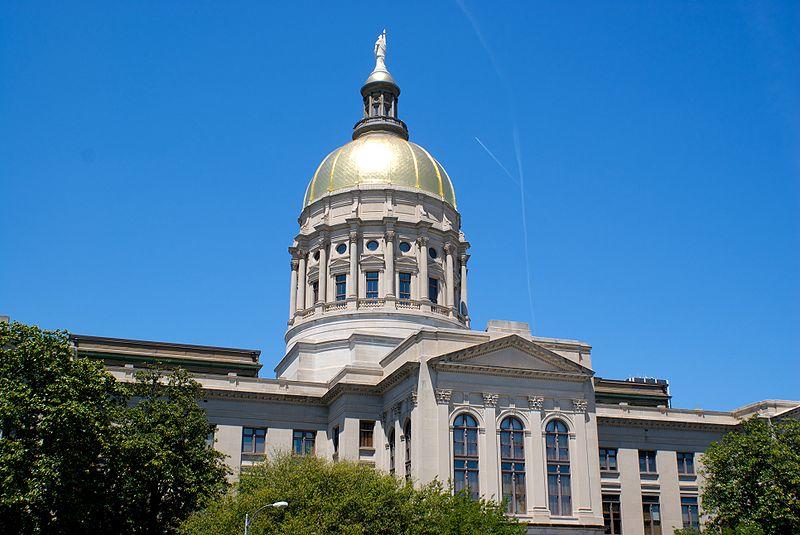Section Branding
Header Content
Georgia Lawmakers To Take Up Religious Freedom Bills In 2016
Primary Content
This session, the Georgia General Assembly will look at two bills dealing with a person’s right to religious practice.
First, let’s take a look at the Religious Freedom Restoration Act, or RFRA. The law hinges on whether the First Amendment does enough to protect a person’s right to practice their religion.
Sen. Josh McKoon (R-Columbus), who introduced the bill in 2015, said last year from the Senate floor that the First Amendment could use some help.
“Because courts need direction on how to interpret the First Amendment," McKoon said. "Courts need direction on how they are going to referee these claims as they come down."
He said the bill would provide that direction, but other lawmakers saw ulterior motives behind the legislation.
“This is a license to discriminate, which will create more opportunities for lawyers,” said Sen. Vincent Fort (D-Atlanta) from the same Senate session last year, voicing some of the concerns raised by RFRA’s opponents.
They argued the law would actually muddy the legal waters and would enable discrimination in the name of religion, especially against members of the LGBT community.
Andra Gillespie, Emory University political scientist, said the legislation would lead to one big issue: where one person's right to religious freedom ends and another person's right to civil rights begins.
She said that issue is likely to be resolved in the courts.
“If that adjudication raises larger constitutional questions, then this is something that’s likely going to make its way through the state and the federal system, and eventually the Supreme Court is going to have to weigh in and adjudicate,” Gillespie said.
A case like that would draw a lot of attention to Georgia, and that’s something that has local business leaders concerned.
The Metro Atlanta Chamber of Commerce, which includes leaders of some of the state’s largest companies, has come out strongly against RFRA because of the negative press its passage or a resulting legal case might create.
They point to all the negative attention Indiana received after it passed a similar law last year and say they don’t want to see the same thing happen in Georgia.
But here’s the thing: the discrimination that people are worried would come from passage of RFRA is already legal in Georgia, according to Eric Segall, who teaches constitutional law at Georgia State University.
“You’re not allowed to turn people away because they’re black. Civil rights laws prevent you from doing that. We don’t have a civil rights law in Georgia like that for gays and lesbians, nor do gays and lesbians have employment protections in the state of Georgia,” he said.
Segall said there are no federal civil rights protections for LGBT individuals, and while some places in Georgia, like Atlanta, have such protections on the books, there’s nothing that exists on a state level.
“All of this in Georgia is very symbolic, because gays and lesbians have virtually no rights in Georgia other than the Supreme Court given right to get married,” Segall said.
Segall also called House Speaker David Ralston’s (R-Blue Ridge) "Pastor Protection" Act a symbolic measure. The yet-to-be-introduced bill would prevent members of a religious group from being forced to marry same-sex couples.
Ralston said last summer that the inspiration for his law came from conversations he had with his constituents.
“From pastors, who were very concerned in view of their religious beliefs coming conflict with the Supreme Court’s decision in the same-sex marriage case,” Ralston said.
However, Segall said the First Amendment would protect members of religious groups from ever being forced to marry same sex couples.
“I don’t know why we’re spending time on this law, which is absolutely not needed,” he said. “Though, nothing will change if the law is passed, so I don’t feel strongly about it. It’s just a waste of time.”
Still, Ralston has said he’ll go ahead with introducing the bill this year, giving the legislature another law that, like McKoon's RFRA, is likely to inspire heated debate, even if that debate doesn’t shed much light.


